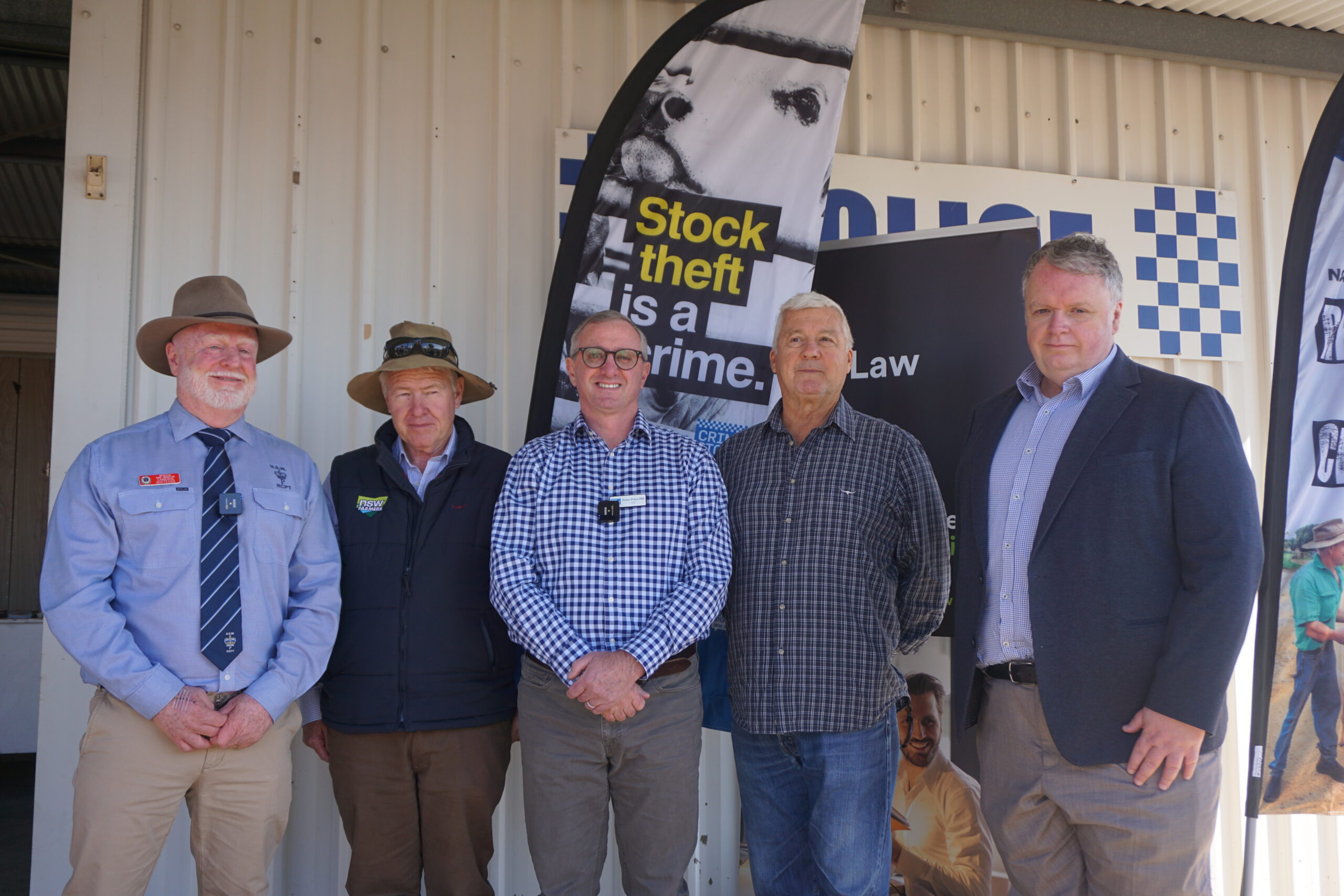A collaboration of Crime Stoppers, NSW Police Force and the Rural Crime Prevention Team has announced at AgQuip last week they are launching the largest single crime prevention initiative for rural NSW.
The state-wide campaign is urging people to report crime more often to the police assistance line (PAL) to collectively gain a better understanding of rural crime.
It is hoped the official slogan ‘be a pal and report it to PAL 131 444’ will become a well-known saying.
Everyone is encouraged to call with information regarding crime regardless if they are the victim or a bystander.
The message zeroed in on farmers who according to the University of New England deputy vice chancellor of research, professor Chris Armstrong: “80 per cent of farmers have experienced crime in the past. Thirty per cent of farmers have experience crime more than seven times.”
Issues such as stock and diesel theft are an issue for farmers.
The initiative also involves the University of New England, Australian Hotel Association, NSW Farmers and more.
These organisations will collectively spread awareness of the message, collect data and deploy resources fit for regional areas.
Crime Stoppers and the NSW government have funded the production of the communication materials.
Regional NSW will see a saturation of the message, working with the Australian Hotel Association to see merchandising in pubs.
“What we know is there is a significant amount of under-reporting in regional NSW,” Peter Price AM CEO Crime Stoppers NSW said.
There is a push for any information on crime to be reported – no matter how insignificant it may seem.
“All crime is a crime,” Mr Price said.
“When you report it to the police assistance line, we can then deploy resources accordingly.”
Detective Chief Inspector Cameron Whiteside from the Rural Crime Prevention Team said it was vital this information comes in to improve the current crime landscape.
“The missing piece of the puzzle is that we need the information,” Det Chief Insp Whiteside said.
“Worldwide, rural crime is only reported about 50 per cent of the time.”
“Once you report a matter to the police, not every matter is going to be solved, that is the reality but let us do our best.”
“If it cannot be solved for various reasons, we speak to the farmer about that and look at ways and strategies that we can improve.”
There are various reasons why people may choose not to report a crime.
The police assistance line adds another option to reporting crime outside of calling a local police station or Crime Stoppers.
“There is a difference, but the information will get to the same place,” Det Chief Insp Whiteside said.
With more data readily available, there will be opportunity to deploy more relevant resources and a better outcome.
“We increase the knowledge of our uniformed police with internal training and take all rural crime reports seriously,” Det Chief Insp Whiteside said.
He encouraged farmers to use the resources on the Crime Stoppers and rural crime prevention team website that is currently available.
To order photos from this page click here



